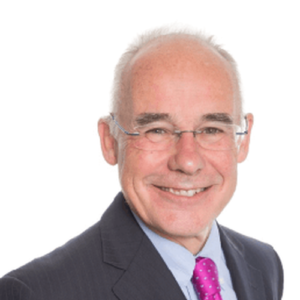Nigel Priestley MBE and the SFAC team attend Brazil’s First National Colloquium on Kinship Care
Nigel Priestley MBE, Senior Partner at Ridley & Hall, was recently part of a team from SFAC (Strengthening Families and Children) invited to speak at Brazil’s First National Colloquium on Kinship Care held in Rio de Janeiro, Brazil.
Ridley & Hall are recognized as one of the leading law firms specialising in Kinship Care in England and Wales.
He traveled with District Judge Ranjit Uppal, who is based at Huddersfield County Court and has considerable experience in child care law, and Mick Pease, a former Leeds Social Worker who set up SFAC.
Nigel is Chair of trustees of SFAC (sfac.org.uk).
SFAC works with charities and Governments on safeguarding children and promoting alternatives to children’s homes when children are no longer able to be cared for by their parents. They share good practices to help children thrive.
Commenting, Nigel said, “It was a privilege to be asked to speak at such an important event. It is recognition of our expertise in the area of kinship care. We spoke to a full house, which was a measure of the importance given to hearing them by the audience. As Brazil still has very little formal kinship care (there are a few isolated municipal level programs), people were particularly interested in hearing about the mechanisms, benefits, and support services that exist in England.
Kinship or connected carers are relatives or friends who put themselves forward to care for a child who can’t live at home. The delegates wanted to know how and under what circumstances children enter into formal care. If the court in England decides to place with kinship carers, what can they access by way of allowances, benefits, and support.
It was important for the audience to see that children in the legal processes have their own representative whose role is to bring the child’s voice and wishes into a central place in the decision-making process; while Brazilian law recognises the child’s right to be heard, in practice, there are no established processes or procedures for this to happen.”
In the report on the Conference, Jonathan Hannay wrote, “Nigel made a big contribution to the Working Party on how Kinship Care worked in practice. He set out what a formal kinship care program should look like, what kinds of support services were needed, and what financial support is important. In his group, there were kinship carers and young people who had been through formal kinship care in Brazil, as well as social workers, judges, and prosecutors.”
The Colloquium was determined to produce a Motion setting key recommendations from the delegates.
The final motion document passed in Plenary at the event is split into 7 specific points which are:
- Creation of a standard on a national level of formal kinship care, which would include minimum staffing for the programmes, outlines of how delivery should be done, and expected outcomes.
- Ensure that governments on all three levels (Federal, State, and Municipal) adequately fund formal kinship care.
- Support the passing of a federal law that would enable all governments in Brazil to make specific grants to kinship carers without having to pass specific legislation of their own. This is to pass post 1 into a para-legal format making it enforceable by public prosecutors (i.e., if there is a need and a municipality does not implement formal kinship care, then they can be taken to court).
- Establish something similar to the welfare checklist from the Children Act 1989 to prevent the unnecessary removal of children from their parents.
- Establish national parameters for family assessments to be done in a uniform manner by social workers, ensuring children are always heard.
- Establish clear definitions for “neglect” and “abandonment,” as well as what qualifies as “an emergency situation” justifying the removal of a child from their parents by the Tutelary Council.
The next step is for a team of judges, public prosecutors, and defenders to visit the UK in Spring 2024 to see for themselves how child safeguarding works in England.
